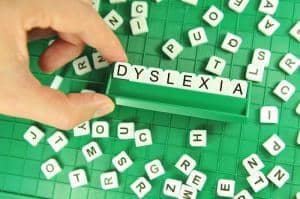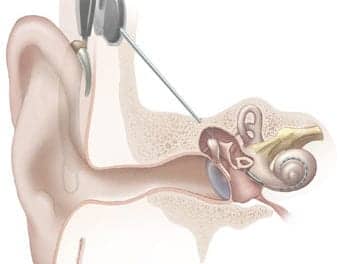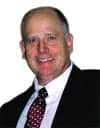Ear Science Institute Australia (Ear Science), a medical research institute in Western Australia, is well underway with HearCog, a two-year randomized control trial of hearing loss and dementia. Tackling a global health priority, the study is investigating whether hearing aids can delay or arrest cognitive decline. Many studies globally have shown the links between hearing loss and cognitive decline and a landmark report in The Lancet Commission for Dementia showed that hearing loss was a priority for tackling dementia. However, to date no definitive studies have shown that treating hearing loss will change the trajectory of cognition.
Further reading: What the ACHIEVE Study Tells Us About Hearing Intervention and Cognition: An Interview with Jennifer Deal, PhD
Dona Jayakody, PhD, audiologist and research lead for the Cognition and Hearing Loss Project at Ear Science, developed the trial concept in 2015 when she began researching the link between cognition and hearing loss. Jayakody says, “My research found that hearing loss is associated with cognitive impairment/dementia so I was interested in finding out whether this could be delayed or arrested by treating hearing loss. Current data suggests hearing loss accounts for 8% of the modifiable risk factors of all cases of dementia.”
HearCog is a randomized, controlled 24-month clinical trial investigating whether the correction of hearing loss using hearing aids could decrease the 12-month rate of cognitive decline among older adults at risk of dementia. 180 older adults with hearing loss and mild cognitive impairment were recruited to undertake the study.
Although the research results are yet to be finalized, several important issues have emerged during the recruitment phase, and as the study commenced. Participants reported the significant impact that their hearing loss has on loneliness, social isolation, communication challenges, and quality of life. Several reported suicidal ideations at the thought of developing dementia.
Co-lead of the study, A/Prof Andrew Ford adds, “Many things have emerged from this study that we didn’t expect, such as participants wanting to improve their hearing health but having no one to go home to hear with or learn from.”
Further reading: Study Links Hearing Loss with Dementia in Older Adults
Study participants completed comprehensive assessments of their hearing, cognitive skills, mental and physical health, and lifestyle. They were all expertly fitted with hearing aids, with some participants waiting a year to receive theirs, as part of the randomized intervention design of the study.
Furthermore, study participants completed Magnetic Resonance Imaging (MRI) and Fluoro-Deoxy-Glucose (FDG)-Positron Emission Tomography (PET) imaging. The results of this imaging will allow researchers to gain more insight into the structural and functional changes of the brain as a result of using hearing aids. The trial also explores the cost-effectiveness of the intervention as well as the impact of hearing aids on anxiety, depression, physical health, and quality of life.
Hearing loss is the second highest cause of disability in the world, affecting 1.5 billion people with 90% of cases being due to age-related hearing loss. Currently, more than 50 million people are living with dementia, an alarmingly growing figure, which is said to triple by 2050. Projections suggest that the total number of people living with dementia could be reduced by 13% if the onset of symptoms could be delayed by two years or more. A result such as this would not only benefit a huge number of individuals, but significantly reduce the ever-growing financial burden of dementia on our health system.
The HearCog trial has several distinctive aspects setting it apart from any other previous studies of its kind, according to Ear Science. Only participants at risk of dementia were selected to be included. Cognitive assessment suitable for people with hearing loss are being used and data logging information is being used to track the number of hours that participants are using their hearing aids.
Ear Science CEO, Adjunct Associate Professor Sandra Bellekom adds, “Hearing loss is such a concern for humanity and there is no cure or effective treatment currently in sight for dementia. Ear Science has taken a calculated risk on this study to try and identify factors that help prevent or delay both age-related and pathological cognitive decline and dementia. We anticipate that our final findings will have significant implications on clinical practice and health policy development worldwide.”
The study is a collaboration between Ear Science, Western Australian Centre for Health and Ageing, and The University of Western Australia. The team includes scientists and expert clinicians in dementia, geriatrics, audiology and hearing healthcare, imaging, health economics, clinical trials, psychiatry, health promotion, and consumer and community engagement including A/Prof Andrew Ford, Prof Leon Flicker AO, Prof Osvaldo Almeida, Prof Mark Eckert, A/Prof Ros Francis, Prof Suzanne Robinson, Prof Nicola Lautenschlager, Prof Simone Pettigrew, Dr Marshall Makate, and Mr Ben Horgan.
This innovative trial at Ear Science has been made possible through the combined efforts of some of the world’s largest names in healthy ageing whose common goal is to develop effective strategies to prevent dementia.
Partnering with Ear Science, Oticon generously donated approximately $1.1 million worth of hearing aids for study participants. This study received over $1.2M competitive funding through the RPH Research Foundation’s Impact and Innovation Grant, Western Australian Department of Health Research Translation Project Grant, Rebecca Cooper Foundation and Equity Trustees Charitable Foundation – The Ron & Peggy Bell Family Legacy.
HearCog began in late 2021; however, the global pandemic caused some delay in its progress. Preliminary findings are expected to be published in the middle of 2024 and stakeholders could not be more encouraged and excited by it.
Ear Science operates the Lions Hearing Clinic network, which provided nearly 58,000 hearing appointments and prescribed over 6,000 hearing devices to West Australians with hearing concerns in 2023 alone. Ear Science has supported the expansion of science-backed hearing care into New South Wales, with the establishment of the first Lions Hearing Clinic officially opening in Neutral Bay on February 15, 2024. This significant milestone represents increased accessibility for adults with hearing loss to receive quality hearing care from an independent, commission-free provider with science at the heart of its clinical practice.
Featured image: Dona Jakody, PhD, and Peter Millington, board member for Ear Science, demonstrate how the HearCog study was conducted. Photo: Ear Science Institute Australia





